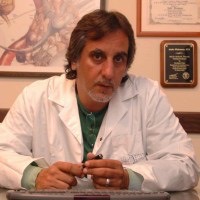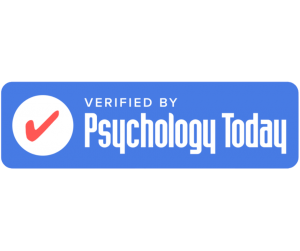The Independent
Published: October 2, 2008
Miracle man? Dr Andre Waismann argues that opiate addiction is a medical problem and that his fast-track neural treatment works far better than counseling and methadone. Drug agencies disagree.
Dr. Waismann explains his vision. “My goal,” he says, “is that any drug addict in the world will one day be able to turn up at their local general hospital and say, ‘good evening, I am hooked on opiates’. They will then lie down on a treatment table and be cured quickly before going home healthy. It will be as simple as taking a trip to the dentist.”
Waismann’s clinic, based in Barzilai Medical Centre in the south of Israel, offers a controversial solution for drug addicts dependent on opiates such as heroin and morphine, as well as people hooked on painkillers containing the opiate codeine, such as Vicodin. Waismann and his team “clean” them of their addiction. The vomiting, nausea, stomach cramps and fever associated with opiate withdrawal are bypassed and the patient, who is sedated during the process, awakes with no cravings, having gone through detoxification. For the next 10 months to a year they take regular pills to counteract the effects of any heroin or opiate they may take and, according to Waismann, become fully functioning members of society again. He says he has successfully treated 11,000 patients over 14 years, and refers to his technique as ANR, or accelerated neuro-regulation. He says it reverses both the physical and the psychological dependency on the drug.
His goal, to have his techniques taken up globally, is driven by a singular philosophy that has made him unpopular with many involved in conventional drug misuse treatment programmers. He believes addiction is a medical problem, not a psychological one and that, on the whole, humans have an innate desire to be healthy, even those who inject heroin. He argues that psychological problems arise because of addiction, so if you can beat the addiction, it is easier to overcome the mental health problems associated with it. Conventional wisdom dictates the opposite, that psychological problems are primarily a catalyst for drug misuse, and that you must treat these in tandem with the dependency, often, in the case of methadone prescription, simply switching the addiction from one substance to another. It’s a classic chicken-and-egg argument; and in the UK, the chicken is sitting on a nest woven from almost £400m of taxpayers’ money allocated for drug treatment.
Waismann believes his methods offer the most humane form of treatment for all opiate addicts, whether hooked on heroin or painkillers, and he accuses drug treatment policymakers in the UK, who favour counselling-based treatment and methadone substitution, of backward thinking.
He states: “It doesn’t matter whether it is a heroin addict who has been using for 20 years or a businessman who started taking codeine for a back problem and got hooked, they develop the same medical illness, which is dependency. You can try the drug once or twice, maybe three or four times, and initially you can chose to use or not to use, but at some point you develop dependency and from that point on if you do not use you will feel terribly ill. As a consequence, users develop severe psychological problems. Convention says addicts have psychological problems to begin with and because of those they become drug addicts. It is not the case. Dependency is a central nervous system disorder that is reversible. Addicts are not mad nor are they people with addictive personalities. They are trapped by a body and mind that constantly craves opiates, and can be healed without methadone, without psychological counselling and without being locked away in rehabilitation centres.”I do not claim to be a genius – I am just a doctor who is tired of seeing addicts being tossed on to the sidelines or fed methadone to keep them under control.”
Born in Brazil, Waismann trained as an anaesthesiologist. But it was in 1985, during his military service in the Israeli army, that he realised the pervasive nature of drug addiction, after witnessing how drugs administered to wounded soldiers could turn into narcotic addiction.
“In a war zone, when someone is badly injured, you cannot do much, so you give them strong painkillers,” he says, “They become dependent. They go home and they develop psychiatric problems, are given psychiatric drugs and then they become zombies, there are thousands of ex-servicemen in situations like that.” In biological terms, there is no difference between these war veterans, painkiller-addicted businessmen, morphine-addicted hospital patients with chronic illness and heroin-addicted prostitutes. The mechanics of their dependency are the same.
Opiates create their alluring effects by hooking on to specific areas on brain cells called opiate receptors. This process produces an effect like pleasure, or reward, and pain relief. Waismann explains: “Our bodies produce natural opiates – endorphins. But when you start using heroin, your endorphin levels go down because your brain doesn’t need to produce it any more. The system collapses. Your dependency on heroin increases until the day you no longer produce endorphins and you become totally dependent on heroin. The more you put in your brain, the more receptors your brain produces and the more receptors you have, the more heroin you need. Eventually you reach the point where the amount of heroin that you need to feel high is the amount that kills you.”
At his ANR clinic, Waismann and his team administer drugs commonly used by anaesthetists to clear the patient’s receptors of opiates and then block them with other drugs that render them impervious to opiates. Each patient is screened to ascertain their level of dependency and is then sedated. The drugs are administered and constantly monitored. The patient is blissfully unaware of the withdrawal process, symptoms that are usually so uncomfortable for addicts. After the treatment, they continue taking a regular dose of the “blocking” medication Naltrexone for up to year, ensuring that any subsequent opiate use will have no effect. “The procedure takes less than 36 hours and afterwards the patient is no longer dependent and does not have cravings,” says Waismann proudly. “This is what modern medicine can achieve.”
The anecdotal evidence and glowing reports of the treatment’s effects are compelling. But if Waismann’s method, and other similar rapid detoxification programs are the wonder cures they claim to be, then why are they not being offered routinely to all opiate addicts?
Israel has been at the forefront of rapid detox under anaesthesia, and, since he first developed the treatment, Waismann has travelled the globe to raise awareness. His crusade started in Australia 12 years ago when a magazine, The Australian Women’s Weekly, flew a 25-year-old heroin addict, Joanne Frare, and her brother, Peter, to be cured at Waismann’s clinic in Tel Aviv. There was so much interest in the story that Waismann agreed to fly to Australia to share his groundbreaking medical procedure with public health authorities there. When he arrived, the magazine reported: “He had just discharged four more Australians from his clinic and since Joanne Frare’s treatment, more than 25 other Australians have followed suit. All are healthy, most are home, and to a man – and woman – they are no longer addicted to the curse that is heroin.” In Lismore, Frare’s home town, more than 300 people, including addicts, families of users, doctors, politicians and business leaders, crammed in to the local workers’ club to hear Waismann.
Since then he has visited India, Cyprus, Indonesia, Brussels, Italy, Croatia and Kazakhstan and his methods have been adopted in several clinics across the world. He says his crusade is moral, not financial. His rallying cry in the countries he visits is the same as the message he has for the UK. “Don’t send me your patients, they are already coming. Send me your doctors and I will teach them.”
The UK has spent millions on research into drug addiction over the years but nothing has changed in the level of care for patients. Medicine however, has changed. So how come, with the biotechnology we have now that allows us to know what is happening in the brain and how dependency works, we cannot help those patients to have better more humane treatment?”







